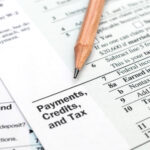By Terry Barrett, CPA, Tax Senior Manager

By Terry Barrett, CPA, Tax Senior Manager | State and Local Sales Tax Team Leader
Retail Sales and Use Tax Rate Increases to Six Percent for Certain Localities in Central Virginia
Effective October 1, 2020, the retail sales and use tax rate in Central Virginia will increase to 6.0 percent, with the additional 0.7 percent tax dedicated to funding transportation needs. The rate increase will be effective in the City of Richmond, Town of Ashland, and the Counties of Charles City, Chesterfield, Goochland, Hanover, Henrico, New Kent, and Powhatan. The current reduced sales tax rate of 2.5 percent will remain on food for domestic consumption and essential personal hygiene items including non-durable incontinence products such as diapers, disposable undergarments, pads, and bed sheets; and feminine hygiene products.
Currently the six percent rate is imposed in Hampton Roads and Northern Virginia areas of the state. The rate in the Historic Triangle, composed of the City of Williamsburg and the Counties of James City and York is 7 percent. In addition, certain localities within the state may charge an additional 1 percent sales tax with legislative authority granted by the General Assembly and subject to voter approval. Beginning on July 1, 2020, the combined state and local sales/use tax rate in Halifax County is 6.3 percent, with the additional local tax dedicated to school projects. The issue will be considered by voters in the November election in several localities, including the City of Danville and the following counties: Charlotte, Gloucester, Henry, Mecklenburg, Northampton, Patrick, and Pittsylvania.
How is Virginia sales tax collected by in-state dealers?
Sales tax is collected by in-state dealers based upon where the order is taken. Thus, beginning in October, dealers in the Richmond area should collect the six percent rate on orders received locally regardless of where in the state the product is shipped. For example, a store in Richmond takes an order for shipment of product to a customer in Roanoke. The sales tax rate in Roanoke is 5.3 percent but because the order is taken in Richmond, sales tax at the rate of six percent should be collected on the sale.
The following illustrates in more detail the rate of tax applicable to different scenarios:
- For product delivered and paid for after October 1, 2020, the rate is 6%, regardless of when ordered
- For product delivered and paid for before October 1, 2020, the tax rate is 5.3%
- For product delivered before October 1 and paid for after October 1, 2020, the rate is 5.3%
- For product paid for before October 1 but not delivered until after October 1, 2020, the rate is 5.3%
No Transitional Provisions for Contracts
In the past with most rate increases there were transitional provisions for contracts covering the period before and after the rate increase. These provisions generally allowed a refund of state sales or use taxes paid on purchases of tangible personal property made pursuant to existing contracts for sales or leases of tangible personal property or bona fide real estate construction projects meeting certain criteria. However, the Department of Taxation has confirmed no transitional provisions were enacted in connection with this .7% rate increase. Real property contractors in particular may be negatively impacted due to the higher taxes due on their purchases of materials on and after October 1, 2020, for contracts were quoted, negotiated or signed prior to October 1, 2020.
Please reach out to your Keiter Opportunity Advisor with any questions about this rate change or see Tax Bulletin 20-8 for more information.
Additional State & Local Tax Resources
About the Author
The information contained within this article is provided for informational purposes only and is current as of the date published. Online readers are advised not to act upon this information without seeking the service of a professional accountant, as this article is not a substitute for obtaining accounting, tax, or financial advice from a professional accountant.



